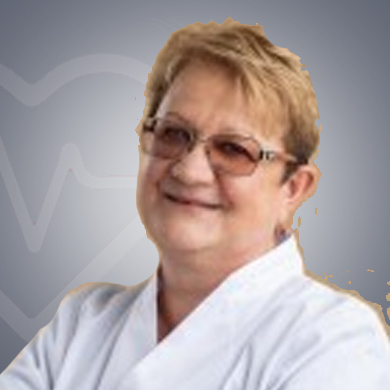
20 Years of experience
Speaks: English
Some of the conditions treated by opthalmologist Dr Maria Ozsvath include:
An ophthalmologist treats diabetic retinopathy based on several factors, such as the severity of the condition and response to previous treatments. Some effective treatment methods include laser treatment, injections, and eye surgery. The doctor might prescribe some antibiotics for bacterial conjunctivitis. Antibiotics might help lessen the length of infection.
Some of the signs and symptoms of different types of eye diseases are as follows:
Routine eye exams are the best way to avoid any vision problems. In case you did not have an eye exam for more than a year, you should schedule a visit with your eye doctor. Being aware of some warning signs can help you take the required steps for the health of your eyesight, especially if the vision symptoms appear suddenly. In most cases, detached retina and onset of glaucoma, quick intervention is required to minimize the permanent vision loss.
The working hours of doctor Maria Ozsvath are 10 am to 5 pm. The average work hours of the doctor is 47 hours per week.
Some of the popular procedures performed by Dr Maria Ozsvath are listed below:
LASIK (Laser in Situ Keratomileusis) uses a laser to reshape the cornea. This procedure uses a certain laser designed to treat vision issues, improve vision, and also reduce the need for glasses and contact lenses. The laser alters the shape of your cornea.

Share Your Experience about Dr. Maria Ozsvath

An ophthalmologist is a medical doctor who is trained in vision and eye care. Ophthalmologists are different from optometrists and opticians because of their different levels of training and the conditions they diagnose and treat. Some ophthalmologists work closely with other medical experts to provide care for chronic eye conditions. While ophthalmologists are trained to treat and diagnose all eye problems, some ophthalmologists specialize in a certain field of medical and surgical eye care. They complete 1-2 years of additional training in one of the main subspecialty areas, including Pediatrics, Oculo-Plastic Surgery, and Neurology. They also participate in scientific research on the treatment for eye diseases and vision issues.
An opthalmologist may suggest the below-listed tests for the diagnosis of eye conditions:
There are several eye conditions and each of them produces different signs and symptoms. An opthalmologist will perform a series of tests to find out the eye problem. An eye exam helps find out eye problems at the earliest stage. Also, regular eye checkups help your eye specialist to correct or adapt to vision changes and provide you tips on eye care.
In the below-listed situations, you must seek assistance from an opthalmologist:
If you notice the above-listed signs and symptoms, you are suggested to see an opthalmologist for a proper diagnosis of the condition. The opthalmologist will evaluate the test reports and will plan the treatment that is best for you.